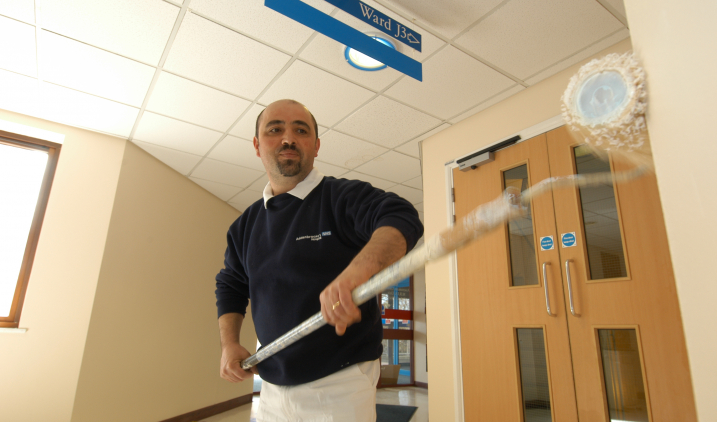Painter and decorator
Painters and decorators use a range of materials to keep walls and other surfaces smooth, protected and hygienic both inside buildings and outside.
This page has information on the role of painters and decorators in the NHS, including entry requirements and skills needed.
Working life
It is important that NHS buildings are well-decorated and in good repair. Hospitals, clinics and headquarters buildings are expected to be safe and pleasant places for patients, staff and visitors.

As a painter/painter and decorator, you could be
- removing old or damaged paintwork or wallpaper
- repairing surfaces to be painted such as walls, window frames, fences etc
- plastering small areas
- estimating how much paint or wallpaper is needed
- preparing surfaces
- wallpapering and painting
You may work on existing buildings or on newly-constructed buildings. You could be redecorating small areas or working on large projects.
Who will I work with?
For small repairs, you may work alone. On larger projects you'll work in a team, alongside other estates team staff such as tilers, plumbers, bricklayers and carpenters. You may have to travel between sites in an NHS vehicle or your own van.
When painters are working in a building, there may be staff and patients there, but painters do not have direct contact with patients.
Painters may work for painting and decorating companies or building contarctors who provide services to the NHS.
Entry requirements
There are no set entry requirements. Employers usually expect a qualification in painting and decorating, such as an NVQ, certificate or diploma. They may also expect some experience of construction work. Employers may ask for qualifications and/or experience in other related areas such as plastering or tiling.
Although painters often join the NHS fully qualified and experienced, it may be possible to train in painting and decorating. Employers usually ask for GCSEs (or equivalent) including English and maths.
Employers may ask for a driving licence.
Skills needed
Painters need to be
- interested in design and colour
- methodical
- able to work quickly and accurately
- physically fit for lifting, standing, bending, etc
- willing to work at heights, indoors and outside
- health and safety aware
- able to work alone or in a team
- practical skills
- good manual (hand) skills
- organisational skills
Training and development
When you start as a trainee painter and decorator, your training will include
- health and safety
- how to use the tools and equipment
- all aspects of painting and decorating
You will be expected to study for qualifications such as NVQs and may be offered an apprenticeship. You may also be encouraged to become multi-skilled by training in, for example, painting and decorating or plumbing.